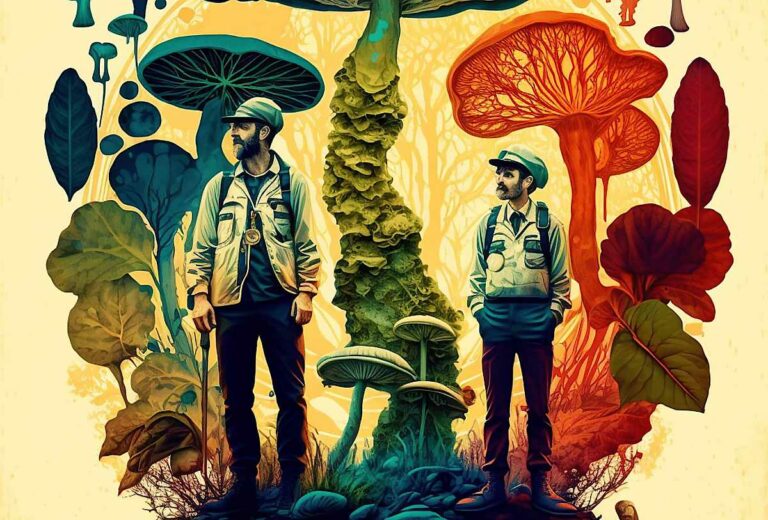You may have heard of ketamine before, but may be surprised that its recent popularity isn’t because of its pain-relieving qualities. Traditionally used as an anesthetic, the medical application of the psychedelic drug has evolved over the past few decades.
New scientific research indicates it may be very effective in treating severe depression among other mental health issues. Today, psychologists and patients alike are excited about ketamine’s mental health potential. Now, there are hundreds of ketamine clinics popping up in the US, where patients will go seeking ketamine assisted therapy for treatment resistant depression or anxiety.
If you’ve heard of ketamine clinics, you may be one of the many people asking, “how do I find a ketamine clinic near me?” In this article we will provide some history and context surrounding ketamine, it’s application in mental health, and actionable steps on how to find the right ketamine clinic for you.
Ketamine’s History
Like many other psychedelic drugs, ketamine has an interesting history, and its origins may shock you. PCP (commonly known as angel dust) was used as a legal, medical anesthetic with sedative properties and could be considered ketamine’s pharmacological uncle. With the goal of deriving a shorter-acting alternative to phencyclidine (PCP), an analogue was synthesized in 1962—and ketamine was created.
Ketamine was introduced to medical science more than 50 years ago and made its way into clinical practice in the early 1960s. It was initially used as a dissociative anesthetic, where patients could remain awake but unable to demonstrate a response to sensory input.
This became valuable in many medical applications ranging from simple procedures to invasive surgery and even military medicine. For decades, ketamine has been considered one of the safest anesthetics and is even suitable for young children.
More recently, however, ketamine’s use has moved beyond its use as an anesthetic. It has increasingly been observed to address a range of mental health issues including bipolar disorder, PTSD, and addiction. Most significantly, however, is ketamine’s ability to produce significant and fast-acting antidepressant properties.
In the 1990s, researchers at Yale University School of Medicine were looking into glutamate, a neurotransmitter that plays a significant role in depression. It was then that they discovered that ketamine impacts the body’s system to create glutamine, and as such, can play a significant role in reducing symptoms of depression. Fast forward three decades and America is now seeing the emergence of medical clinics focused on offering ketamine assisted therapy.
What is Ketamine Assisted Therapy?
Ketamine assisted therapy (KAP) is the use of ketamine under direct medical supervision in a psychotherapy session, typically in a medical clinic. KAP has evolved over the past twenty years, but ketamine’s significant ability to address symptoms in mood disorders like major depressive disorder (MDD) and bipolar depression remains the same. Ketamine’s therapeutic use covers a broad range and includes a reduction in symptoms for suicidal thoughts, treatment-resistant depression, anxiety disorders, and addiction.
As the name suggests, KAP combines traditional psychotherapy with ketamine during a single or several multi-hour sessions. Ketamine not only works to increase activity of the glutamate neurotransmitter—contributing to increased mood and reduced anxiety—but also allows for new connections to be made in different areas in the brain.
These novel connections contribute to enhanced relationships, elevated mood, and a more positive outlook on life. Although significant benefits may be achieved after just a single dose of ketamine, multiple sessions may be necessary as well as ongoing therapy and integration for weeks or months following treatment.
How to Find a Ketamine Clinic Near Me?
Ketamine is one of the only psychedelics that are legally able to be used therapeutically. Fortunately, for the thousands of sufferers who are seeking an effective treatment for their depression or other mood disorder, ketamine outpatient clinics are numbering in the hundreds around the United States.
So, how can you begin your search to find one? In reality, searching online for a ketamine clinic near you will bring up many results. There will obviously be certain parameters to your search that will play a role—budget and location most likely being the most important.
The average price of a single ketamine infusion ranges anywhere from $300 up to several thousand. The cost will vary between clinics but will generally be dependent on the length of the infusion and the size of the dose. You’ll be able to narrow down the clinics that are within your price range and located close by.
But here comes the difficult part—how do you compare clinics? What questions do you ask when you make inquiries? This article will help you determine which ketamine clinic is right for you, factors in comparing ketamine clinics, and general information so you can ask the right questions while conducting your due diligence.
Ketamine Clinic Standards
Ketamine infusion as a part of psychotherapy is administered in a clinic that has met specific requirements as set out by the Drug Enforcement Agency (DEA). As ketamine is still a Schedule III substance, different states will have to meet different requirements with regards to licensing.
Ketamine’s psychiatric applications technically aren’t recognized by the FDA and is considered “off-label” use, which is approved for certain medical practitioners. Clinics will typically have practitioners with one or several of the following medical licenses: anesthesiologist, Medical Doctor (MD), Doctor of Psychology (PsyD), therapist, certified registered nurse anesthetist (CRNA), medical administrator, or skilled psychiatric mental health nurse (PMN RN). As far as who actually administers ketamine, however, there are no federally recognized regulations.
Some ketamine clinics are beginning to develop standards of practice by having anesthesiologists or anesthetists to actually administer ketamine, but this is by no means a requirement. Many clinics will require that staff and overseeing clinicians are trained to respond to respiratory and cardiovascular emergencies.
It is also important that the clinic is staffed with appropriate monitoring tools, as well as an appropriately trained physician who is able to respond to any concerns and resuscitate if necessary. APA guidelines also recommend that an on-site clinician is available to evaluate and treat any psychological or behavioral risks that arise.
Certain protocols for safety will vary across different clinics but many will provide general medical and ketamine specific training for the teams involved in the administration. Common routes of administration for ketamine include oral lozenges, intravenous infusion, or intramuscular injection.
Doses will be determined by height and weight with those for depression are typically based on a rate of at least 0.5 mg/kg. This is usually administered over 40 minutes and blood pressure and respiratory conditions will be monitored during this period. For a more detailed breakdown of ketamine dosages, check out our comprehensive psychedelic dosage guide.
Prior to administration, the patient will undergo a physical which includes a discussion of patient history as well as a psychotherapy session. One important thing to note is that ketamine assisted therapy is generally not provided as a first-line treatment. A therapist will thoroughly understand the patient’s mental health history, including past treatments, medications, and other strategies that were unsuccessful before ketamine therapy was sought.
What to Look for in a Ketamine Clinic
When you’re looking for a ketamine clinic pay careful attention to who will be administering the ketamine, and who is available on-site. If there’s a clinician (MD) available, that should add some peace of mind.
Also, pay attention to the evaluation criteria and steps that take place prior to the infusion session. Be wary of clinics that begin with the infusion session with little to no screening. If you do have a thorough screening prior to the infusion, this is a great venue to ask questions about qualifications, staff, procedures, and what to expect.
Helpful Questions to Ask:
- How many patients have they successfully treated?
- Do you have reviews or referrals from past patients?
- Where is the clinic? Is it a standalone building that only provides ketamine therapy? Or is it linked to another larger clinic or hospital that would have all the necessary staff and equipment to alleviate any issues should a complication arise?
- While you’re receiving the ketamine infusion, will there be a mental health professional available? In many cases, you’ll want a psychiatrist or other mental health professional with you throughout the session.
Questions like these will not only help you determine whether ketamine assisted therapy is right for you but also determine if the clinic is a good fit.
As a relatively new therapy modality, ketamine infusion clinics have to meet appropriate licensing standards, but beyond that, have a lot of freedom when it comes to how they practice with ketamine—which makes vetting one of the most important parts of your search for a ketamine clinic. That being said, you’ll want to ensure that the clinic in question is using ketamine in a way that is safe, responsible, and respectful.
If your interest in ketamine is any indication, there is a good chance that you fundamentally understand that psychedelics can positively benefit your life. Regardless, you probably have a million questions on how to do so safely and effectively, and that’s why we created Psychedelic Passage. To get your questions answered and begin an informed and supported relationship with psychedelics, we suggest you connect with a psychedelic trip sitter who can guide you through the process.
What is the Process Like?
As discussed above, you will have had an initial consultation prior to the day of the ketamine treatment. Here, any issues will be discussed, as well as what current medications you’re on and what symptoms you currently deal with.
On the day of the treatment, you will not be able to consume food for eight hours prior to the infusion, and this includes gum and smoking. You will be asked to stop drinking water around four hours before the treatment.
Ketamine is typically administered as an IV infusion, although oral ketamine lozenges are also available for some patients.
During the infusion, you will relax in a comfortable lounge chair. You will feel clear-headed following the infusion, but will generally have to wait about 20-30 minutes before being discharged.
You will have to be driven home by a friend or family member, and it’s recommended that you have someone spend the rest of the day with you. For some, just one treatment will be enough! For others, they may get additional benefits from returning multiple times.
How Will I Feel?
Ketamine is a dissociative anesthetic and its effects are varied. One might experience vivid dreams, nightmares, dizziness, fatigue, headache, out-of-body experiences, altered hearing and vision, euphoria, inebriation, and confusion.
Some may also experience increased heart rate and high blood pressure, and possibly hypo- or hyperventilation. Therapists will be aware of any adverse effects and can either slow the rate of infusion or stop it entirely if needed.
Each person will react differently and although you may experience an altered mental state, you may still be alert and capable of talking. Your experience with ketamine will most likely introduce you to altered states of consciousness, and you may find them very enjoyable.
While ketamine has been known to be abused recreationally, using it in low doses and in a medical setting means that there is virtually no potential for addiction.
A Note on Esketamine
You may have come across the word esketamine during your search for a ketamine clinic, but what exactly is it? In 2009, Johnson & Johnson was the first major pharmaceutical company to pounce on the promising results produced by ketamine. They developed and produced their own version of the drug, called esketamine. Following FDA approval in February 2019, esketamine became the first new depression drug to be approved in more than 35 years.
Esketamine (brand name, Spravato) is inspired by ketamine and works in the same way. Unlike conventional antidepressants, both ketamine and esketamine target a different area of the brain.
It will be administered in the same way, normally under the presence of a clinician and only at a certified medical clinic. Oh, and patients will receive two sessions a week, with a price tag of roughly $5,000 to $7,000.
Unlike therapeutic ketamine, however, esketamine is generally administered as a nasal spray. Also, when studied at a cellular level, esketamine is not considered a psychedelic drug.
However, when taking into consideration the experiences people have after consuming esketamine, it can easily fall into that category. In fact, 61% to 75% of esketamine users experience the same dissociative effects they would with ketamine—including illusions and distortion of time and space.
Some view the approval of esketamine as further legitimizing the use of mind-altering substances for therapeutic purposes. In fact, one of the other companies working on a ketamine-related drug, ATAI Life Sciences, is also one of the main advocates and funders for magic mushroom research. Ketamine might be clearing the path for legalization of other psychedelics—only time will tell.
Wrapping Up
Ketamine has come a long way since its synthesis more than half a century ago. It’s not only demonstrated promise as an effective anesthetic but also as a very effective treatment to mood disorders like depression and anxiety.
And luckily, there are legal options for those seeking ketamine assisted treatment. Ketamine therapy clinics are emerging all over the United States which is great for mental health sufferers looking for a solution.
However, this isn’t all good news—as quality and effectiveness of the experience vary significantly between clinics. If you’re looking for some help in navigating this new therapy modality, as well as give you insights on how to best incorporate these sessions into everyday life, we invite you to book a consultation with us. We’ll support you on your journey, giving you the confidence and clarity you need to focus on what’s most important—healing.



